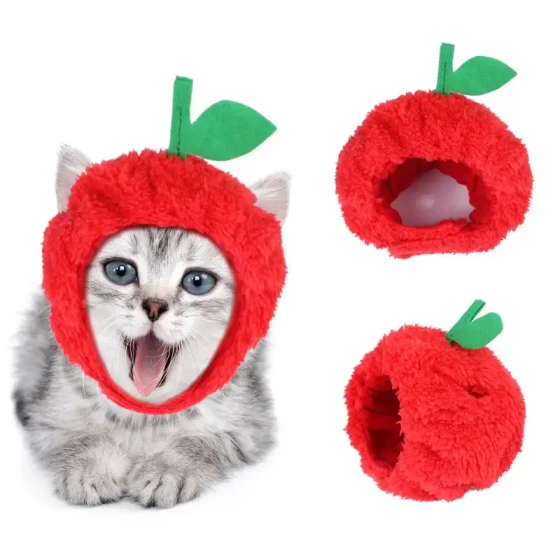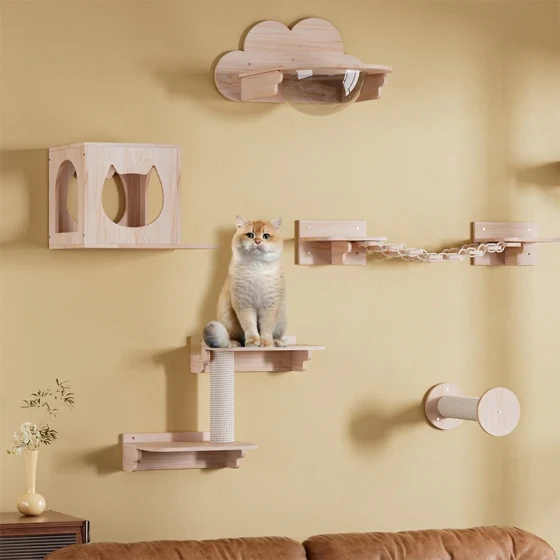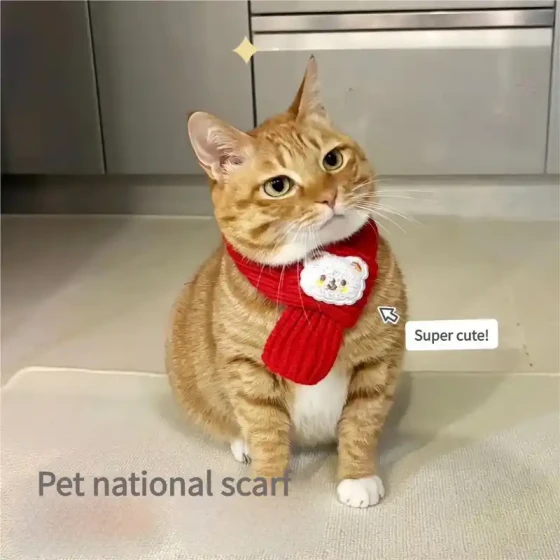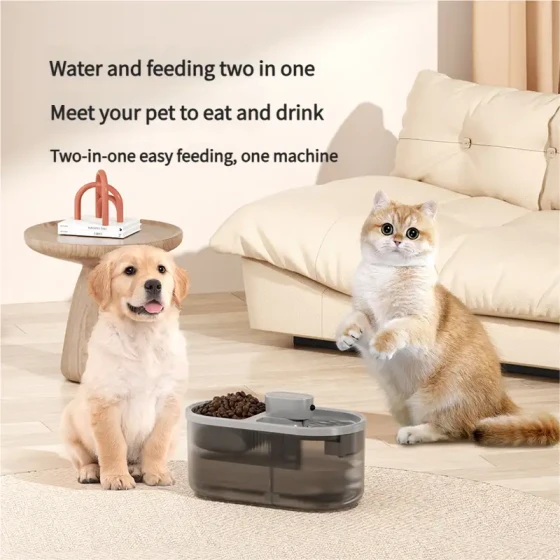Pros and Cons of Cats Drinking Milk_Cautions and Health Impacts of Cats Consuming Cow's Milk
Many cats are naturally unable to digest lactose in milk, just like some people feel uncomfortable after drinking milk. Therefore, although we often see cats happily licking milk in cartoons, in real life, most adult cats drinking milk may actually lead to health problems. Their main source of drinking water should be clean, fresh boiled water.
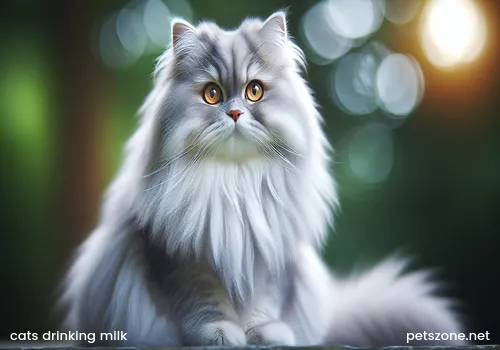
Why are many cats not suitable for drinking milk? (Lactose Intolerance)
To understand the relationship between cats and milk, it is first necessary to recognize the concept of "lactose intolerance." Lactose is the main sugar in milk. Kittens before weaning produce a large amount of lactase, an enzyme that can break down lactose and help them digest mother's milk. However, once kittens are weaned, the secretion of lactase in their bodies gradually decreases or stops. This is similar to humans who can drink milk during infancy but may experience bloating and diarrhea as they grow older.
When there is a lack of sufficient lactase, the undigested lactose directly enters the large intestine. Bacteria in the large intestine ferment this lactose, producing gas and acidic substances, while lactose also absorbs water, causing digestive discomfort in cats. This is why many adult cats develop a "glass stomach" and various discomforts after drinking milk.
Health problems that cats drinking milk may cause
Feeding milk to lactose-intolerant cats most commonly results in digestive system issues. Specific symptoms may include:
- Diarrhea: This is the most common symptom because excessive water and stimulation in the intestines speed up peristalsis.
- Vomiting: Some cats may vomit immediately or shortly after drinking milk.
- Bloating and gas: Gas produced by intestinal bacteria breaking down lactose causes abdominal bloating, and cats may appear restless or lose appetite.
- Abdominal pain: Bloating and intestinal spasms may cause abdominal pain.
Besides lactose issues, the relatively high fat content in milk can also be a burden for cats. Long-term excessive milk consumption may cause cats to intake too much fat, increasing the risk of obesity. Obesity can trigger a series of health problems, such as diabetes and joint diseases.
So, is all milk unsuitable? (Exceptions and Alternatives)
Not all "milks" are off-limits for cats, but it depends on the situation.
- Kittens: For kittens not yet weaned, mother's milk is their best food. If kittens cannot get mother's milk, specially formulated kitten milk replacer should be chosen. These milk powders have ingredients closer to cat mother's milk, with low lactose content or specially processed, and nutritional ratios meet kittens' growth needs. Never feed ordinary cow's milk or human milk powder to kittens, as this may cause severe diarrhea or even threaten their lives.
- Adult cat alternatives: There are some specially designed pet milks in the market. These milks are usually specially processed to significantly reduce lactose content and are relatively more suitable for adult cats. If you really want to give your cat some extra "treats" or supplements, occasionally feeding small amounts of this pet milk is acceptable.
- Other fermented dairy products: Some fermented dairy products, such as unsweetened plain yogurt or kefir, have most lactose broken down during fermentation. Small amounts may be easier for cats to tolerate than regular milk. However, even so, you should start with small amounts, observe your cat’s reactions, and these should not be the main nutritional source.
Remember, for cats of all ages, the most important and essential beverage will always be clean, fresh boiled water. Ensuring cats have constant access to water is far more important than giving them any dairy product.
If you want to "supplement calcium" or provide nutrition to cats, what are better options?
Many owners might think giving cats milk is to supplement calcium or provide extra nutrients. In fact, healthy adult cats should obtain all their nutrients (including calcium) from high-quality, nutritionally balanced cat food. Reputable cat food is scientifically formulated to fully meet cats’ daily needs for protein, fat, carbohydrates, vitamins, and minerals.
Feeding extra milk or other human food to "supplement calcium" or nutrition may cause digestive problems and disrupt the nutritional balance of cat food, which is not beneficial to cats’ long-term health.
If you worry your cat is lacking certain nutrients or if your cat is in a special physiological stage (such as pregnancy, lactation, or old age), consult a professional veterinarian. The vet will recommend appropriate cat-specific nutritional supplements based on the cat’s condition, rather than suggesting solving the problem by feeding milk.
Frequently Asked Questions
- Q: My cat drinks milk without diarrhea, does that mean it can drink it?
A: Some cats may have lower sensitivity to lactose and show no immediate obvious symptoms after drinking small amounts of milk. But this does not mean milk is completely harmless to them. Long-term feeding may still increase the digestive system burden or cause other potential health issues (such as obesity). Like people have varying pollen allergy sensitivities, it is best to avoid or limit feeding. - Q: Can cats drink lactose-reduced milk?
A: Lactose in lactose-reduced milk is already broken down, theoretically making it more suitable for lactose-intolerant people. Although lactose content is reduced, it still contains other milk components and fat content remains unchanged. Pet-specific low lactose or lactose-free milk is a better choice. If there is no pet milk at all, giving small amounts of lactose-reduced milk occasionally may carry lower risk but still requires careful observation of reactions. - Q: Can cats drink goat's milk?
A: Goat's milk has relatively lower lactose content than cow’s milk and smaller fat globules, which some cats may digest more easily than cow’s milk. Therefore, pet goat milk is a more recommended alternative than cow’s milk. But it is also advised to choose pet-specific goat milk, feed in small amounts, and observe the cat’s reaction.
Summary
Overall, although kittens in cartoons love drinking milk, the vast majority of adult cats in reality are lactose intolerant. Feeding them ordinary cow’s milk is very likely to cause diarrhea, vomiting, and other digestive discomfort symptoms. Kittens should drink mother’s milk or specialized milk replacer, and adult cats should mainly drink boiled water. If you want to give your cat treats or supplements, choosing pet-specific low-lactose milk or using specialized nutritional supplements under veterinary guidance is safer and healthier. Remember, balanced cat food and sufficient fresh water are the keys to ensuring cat health.

